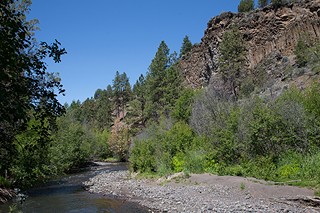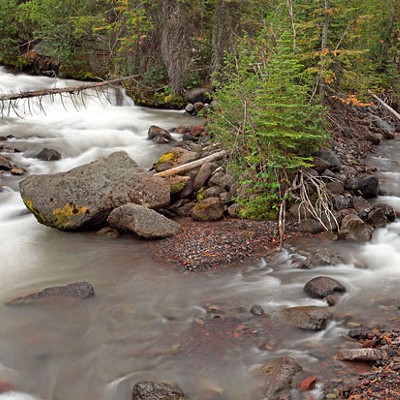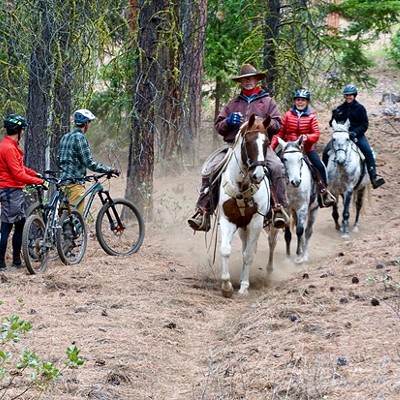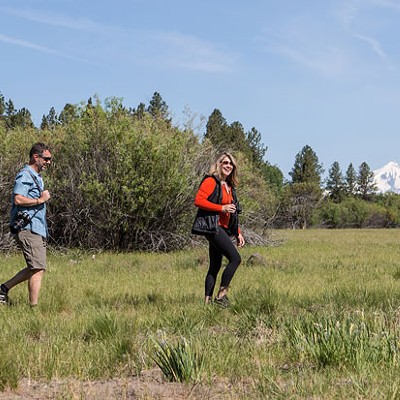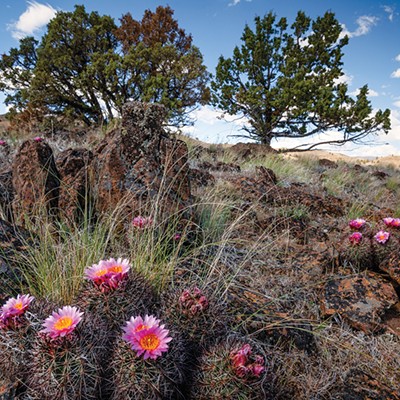The Whychus Creek area is home to a wide array of wildlife. Salmon and steelhead swim in its waters, mule deer and Rocky Mountain elk graze along its banks, and golden eagles and spotted bats fly through the skies above.
Thanks to Deschutes Land Trust and its supporters, an additional 58 acres of that habitat is now protected. On Monday, DLT announced the purchase of a swath of land the group is calling Aspen Hollow Preserve as part of its ongoing Whychus Campaign.
Launched last fall, the $15 million campaign is already a third of the way toward its financial goal, with contributions from Land Trust members, the Oregon Watershed Enhancement Board, the Laird Norton Family Foundation, and the Roundhouse Foundation. So far, Deschutes Land Trust has secured 2,200 acres of land around eight miles of Whychus Creek.
"Our purchase of Aspen Hollow Preserve is a great example of how the Campaign for Whychus Creek can help conserve the best of Whychus Creek," Executive Director Brad Chalfant said in a release. "Early donors to the Campaign provided bridge funding for the project while we worked with other funders to secure final purchase funds. The availability of this bridge funding allowed us to move quickly to secure the property when the opportunity presented itself. Going forward, we expect the Campaign will continue to be critical to conserving the remaining priority lands along Whychus Creek."
Deschutes Land Trust purchased the Aspen Hollow Preserve land from the outdoor education group Wolftree, Inc. for an undisclosed amount. DLT Conservation Director Brad Nye explained that the group secured the property by a trust deed with a "significant amount" of seller financing in August 2008. When the bottom fell out of the real estate and stock markets, Wolftree's supporters were not able to fulfill their donation pledges, leaving the group burdened with debt.
"Owning and managing properties is not a core business for Wolftree. The project was distracting them from their core business of providing education, and the seller-financed debt was a threat to the organization's financial integrity," Nye explained. "Wolftree eventually enlisted the Land Trust to work with the sellers to remove the trust deed lien and secure the property. Our main objectives in acquiring this property were to realize the original intent of permanently protecting the property's significant natural resources, and to ensure the property's availability as a community educational resource."
The Deschutes Land Trust has so far protected more than 8 miles of the highest quality habitat and has its eye on about 3 more.
"My guess, and that's all it is at this point, is we're talking about 275-350 acres of additional conservation we'd like to end up doing within the remaining high-priority stream reaches," Nye explains. "That figure will probably be augmented by opportunistic projects on lesser priority sites—sites that may provide great habitat, but either don't have significant restoration upside or are not within stream reaches where we can tie multiple conservation sites together, leveraging our conservation and restoration efforts."

